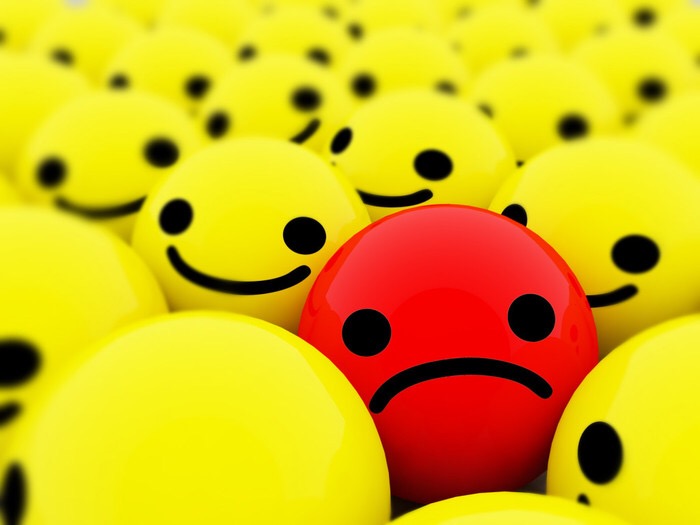This week is the 100th #PNDhour, a fantastic milestone for the weekly per support network for women experiencing postnatal depression and perinatal mental health problems. The Twitter chat takes place every Wednesday at 8-9pm. It is the brainchild of Rosey, a mum of 3 and PND survivor who can be found at @PNDandMe and pndandme.co.uk.
When I was in the depths of my mental health problems, I couldn’t even look at myself in the mirror. I’d close my eyes or turn to the side whenever I went past one, afraid to look at the mess I’d become. Broken body and unwashed hair and sad eyes; I thought maybe if I didn’t look at myself I could pretend it was happening to someone else.
One of my first outings with my baby, I was flustered and in a panic because my baby needed feeding in the library and was crying very loudly, and I didn’t know when to go. A lovely older librarian helped me out, and on the way out the door, she told me she thought I was doing great, and whispered that she didn’t get out of her nightie before 3pm with her first. It gets better, she told me.
When I was finally admitted to the mother and baby unit, it was in the hospital I work in. It was a couple of days before it sunk in just how close I was to my office, my colleagues, and my patients. I was granted escorted leave from the ward, but I didn’t want to go. I was terrified of being seen.
One day my psychologist gave me a business card for a local peer support group. I went along with my baby, and it was just me at the group that day. But the the facilitator had also been in the same ward a few years ago, and I found myself saying “me too!” over and over again.
Months later, back at work, I was sat near some hospital staff laughing and joking with each other. “Ha ha yeah they got a place for people like you! Down on A floor! Never see you again mate!” said one to his friend. That’s where the mental health wards are. Eyes stinging and cheeks burning, I just sat there. Heart pounding with anger. Impotent rage. Mouth stitched shut by social stigma, I didn’t say a word. Oh yeah it’s real laugh a minute stuff down there, wanting to kill yourself to end the mental torture, what a hoot. Being so terrified because you don’t know what day it is or whether you’re alive or dead, hilarious.
I found more and more people online who’d experienced similar things to me, and we supported each other and learned to heal. I discovered #PNDhour and the wonderful job it does supporting women with perinatal mental health problems. It gave me the confidence to be more open with mummy friends, and I started to hear that magical phrase more… me too… me too…
Later again, I’d started going back to an evening class to get some time out for myself. It was Halloween, we were all condemning the sale of ‘psycho’ costumes by supermarkets. Then the atmosphere changed. A few of our group lean in, and one by one started recounting all the ‘scary nutter’ stories they knew. The dad who was chased by a ‘mental patient’ who wants to play tag with him, the mad lady in her pyjamas asking for a cigarette. All the while laughing and saying how scared they’d be. I tried meekly to educate them; “you’d be surprised who’s been in hospital and you don’t know”, but the conversation had already moved on, so I didn’t tell them. I felt like crying and hiding, but I couldn’t let my “us” mask slip to reveal I was really one of “them”.
I began to notice when friends were struggling after their babies were born, and got braver at sharing, and saying loudly this time ME TOO. I’d tell them to come join us, at the support group, on the Twitter chat, and share their stories.
Recently I was at a professional training event, where the child safeguarding person told us that children shouldn’t have to suffer the embarrassment of having mentally ill parents. I challenged her view, in front of a whole room full of colleagues. A friend of mine attended the training later and told me they’d changed the content to comply with equality laws and anti stigma campaigns.
Eventually, I felt brave enough to tell my story to a group of trainee midwives, emboldened by peer support voices. Their feedback was wonderful and I’m confident they’ll consider perinatal mental health more now.
I sometimes think, If only I had a limp, a disfigurement, a crutch. Something that shows the lasting damage of my mental health problems, something people could see and notice and feel sorry for. They’d know to go gentle, speak differently around me. But instead, I’m seen as part of the “us” not the “them” of mental illness and I get the full force of their ignorance and stigma, raw and unfiltered.
I now see it as my job to challenge stigma where I see it, and peer support like #PNDhour has been instrumental in giving me the confidence to do so. As a group, we have a louder voice and we help each other overcome the secrecy and shame and speak up for what’s right.
It starts with a whisper. “It gets better”, “Me too”, slowly building in volume, until the whispers become a roar. “Me too” becomes “us too” and now, we make people listen.

